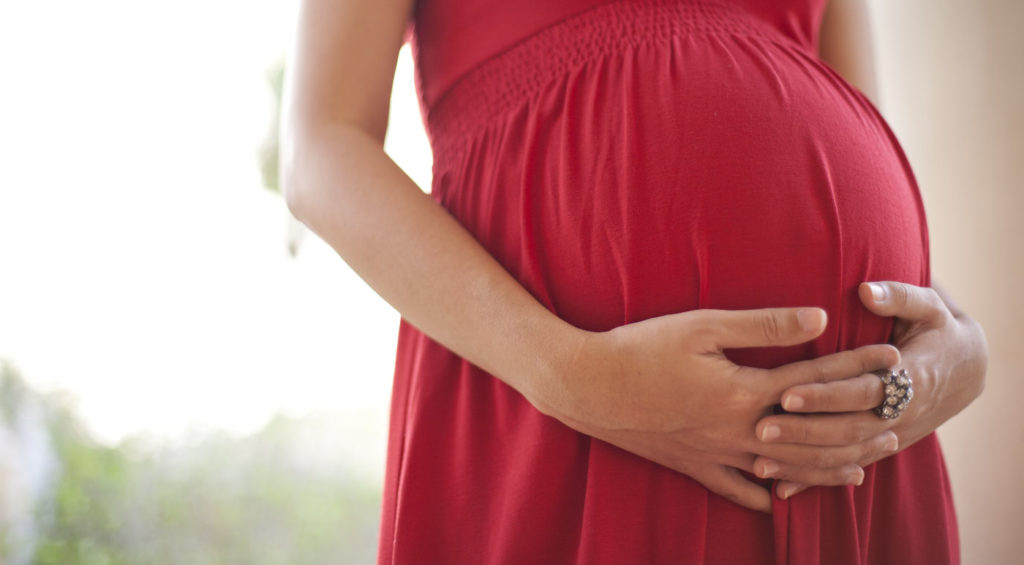
The developing fetus is extremely sensitive to adverse conditions, including exposure to the side effects of drugs. As such, it is critical to know exactly what the safety profile is of any drug or supplement before a pregnant woman takes it. In this article we review the current state of the safety of CBD use in pregnancy.
Table of Contents
- What is CBD Oil?
- Is CBD Oil Safe For Use in Pregnancy?
- What Are the Concerns with CBD oil in Pregnancy?
- Buyer Beware
- Can CBD be Used for Medical Reasons in Pregnancy?
- Can I Use CBD Oil If I Choose to Breastfeed?
- Will More be Known in the Future?
What is CBD Oil?
The resin of cannabis plants – hemp and marijuana – contain varying amounts of more than 100 biologically active compounds known as cannabinoids. The most commonly known of these compounds are tetrahydrocannabinol (THC) and cannabidiol (CBD). THC produces the well known “high” of marijuana, but CBD does not.
CBD is popular for its purported health and medicinal effects, some of which are questionable and unproven. CBD-containing products are currently available in the U.S. without a prescription and may be purchased online or in stores.
In order for CBD to be ingested, it must be dissolved in oil, which is why it is commercially available as “CBD oil.” The oils used to make CBD oil include various edible plant oils, such as oil from the hemp plant itself or coconut oil. CBD oil is marketed in a number of products that may be ingested orally, rectally, vaginally, or applied to the skin, and also through vaping.
Is CBD Oil Safe For Use in Pregnancy?

The FDA warns that “there may be serious risks to using cannabis products, including those containing CBD, if you are pregnant or breastfeeding.”
As with many other drugs and supplements, there are no formal clinical studies of the effects of CBD on pregnant women for ethical reasons. However, based on animal studies and anecdotal reports of women who used CBD during their pregnancies, there is significant risk to the developing fetus from exposure to CBD.
There are a lot of factors to consider when deciding on whether a drug is safe for pregnancy:
- Does the drug or supplement cross the placental barrier?
- Does the drug or supplement affect fetal development?
- Will the drug or supplement have effects on the child later in life?
- Does the drug or supplement affect the mother’s health?
- Will the drug or supplement affect the mother’s ability to carry the pregnancy?
- Do the benefits of the drug or supplement outweigh the risks?
With the current understanding of the effects of CBD, none of these questions can be answered with any certainty. That is the basis of the FDA’s warning that CBD and other cannabis products should be avoided during pregnancy.
What Are the Concerns with CBD oil in Pregnancy?
Besides the lack of safety information about CBD use in general and particularly during pregnancy, emerging reports pregnant women’s exposure to CBD are also causing concern. The American College of Obstetricians and Gynecologists (ACOG) has recently made a statement that cannabinoids in general – including CBD oil – may harm the development of brain cells and their connections in the fetal brain as well as cause general growth restrictions.
A recent published study out of the University of North Carolina showed that cannabinoids – including CBD oil – can cause fetal growth restrictions as well as brain and facial defects.

Another concern with using CBD during pregnancy is that the FDA does not currently regulate or monitor the safety and purity of CBD oils on the market. There have been reports of harmful impurities contaminating CBD products, such as:
- THC
- Heavy metals
- Bacteria
- Fungus
- Pesticides
At this point in time, studies about the safety of CBD oil use in pregnancy are very limited, and there is much that we don’t know. The limited data that we do have strongly suggests that pregnant women should avoid the use of any cannabinoids, including CBD oil.
Another concern about using CBD oil in pregnancy is its potential effects on the wellness of the mother. CBD oil can cause significant side effects, such as:
- Liver toxicity
- Changes in alertness
- Changes in mood
- Gastrointestinal distress
- Unknown interactions with other medications and drugs
Buyer Beware
One recent study of Colorado cannabis dispensaries found that nearly 70% of them recommended cannabis products to treat nausea in early pregnancy, and few of these dispensaries suggested first discussing the issue with a health care professional. This underlines the importance of discussing any drug or supplement use – whether they are by prescription or available over the counter – with a health care professional prior to use in pregnancy.
Can CBD be Used for Medical Reasons in Pregnancy?

CBD currently has only one FDA-approved medical use in the U.S., which is the prescription drug Epidiolex. Epidiolex is used only for treating two rare and severe forms of epilepsy. The FDA advises pregnant women who take Epidiolex to switch to a different epilepsy medication if it is possible for them to do so.
Can I Use CBD Oil If I Choose to Breastfeed?
According to the U.S. Drugs and Lactation Database (LactMed), CBD has not been studied in nursing women, but it has been detected in the breast milk of women who are using cannabis products. The effects on lactation, breastfeeding, and the nursing infant are unknown. As such, CBD oil use is not recommended while breastfeeding.
Will More be Known in the Future?
Currently, the proper research data needed to establish safety and efficacy of CBD for its many purported health-related uses is not yet in place. Given the high level of public interest in CBD more research studies will certainly be done to close this knowledge gap. As such data becomes available, the FDA will surely reconsider its position on CBD. However, since safety data cannot be obtained by experimental research, it may be a long time before we know more about the safety of CBD in pregnancy.
